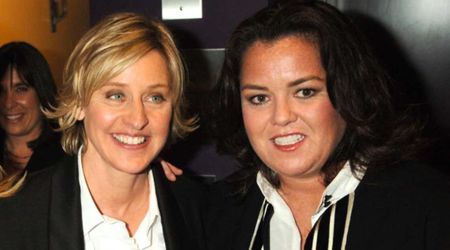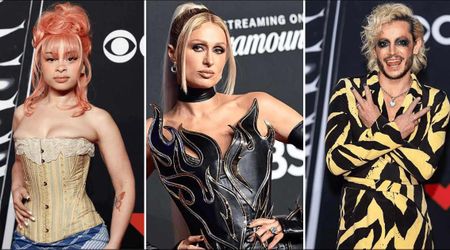Demi Moore reveals how Bruce Willis influenced her record-breaking paycheck for 'Striptease'

NEW YORK CITY, NEW YORK: Demi Moore has made a striking return to the big screen with her latest role in the body horror film 'The Substance'.
But as she navigates a new chapter in her career, she also reflects on her iconic past, and how her 'Striptease' Hollywood fame was influenced by her ex-husband, Bruce Willis.

Demi Moore recalls record-breaking salary for 'Striptease' and the backlash
Back in 1996, Demi Moore was one of the most sought-after stars in the industry, earning a then-record-breaking $12.5 million salary for her role as an FBI secretary-turned-stripper in 'Striptease'.
It was a defining moment, not only for Moore but for women in Hollywood, as she became the highest-paid actress of her time.
However, the milestone came with a heavy price. Moore recalls, “Well, with Striptease, it was as if I had betrayed women, and with G.I. Jane, it was as if I had betrayed men,” referencing the backlash that followed her financial success.
'Striptease', despite its box office draw, was a polarizing film, with Moore’s provocative role drawing scrutiny.

She followed it with 'G.I. Jane', a physically demanding movie that, though empowering in its message, was also met with tepid reviews. The criticism of both films felt personal, as Moore was made to bear the weight of her own success.
"But I think the interesting piece is that when I became the highest-paid actress—why is it that, at that moment, the choice was to bring me down?" she shared on The New York Times’ podcast 'The Interview'.
Moore didn’t internalize the backlash, understanding it was symptomatic of a broader cultural issue.
“I think anyone who had been in the position that was the first to get that kind of equality of pay would probably have taken a hit,” she said. “But because I did a film that was dealing with the world of stripping and the body, I was extremely shamed.”

At the time, Moore was married to Bruce Willis, one of the biggest action stars in Hollywood. While many might have compared themselves to their partner, Moore saw the situation differently.
“It wasn’t about comparing myself to him,” she explained. “Yes, I saw what he got paid. It was really more about: ‘Why shouldn’t I? If I’m doing the same amount of work, why shouldn’t I?’”
This sense of equality and frustration extended to how women, especially actresses, were treated in other areas.
Demi Moore drew backlash for her iconic pregnancy photo
Demi Moore recalled the uproar over her 1991 Vanity Fair cover, where she posed nude and pregnant.
Shot by Annie Leibovitz, the now-iconic image caused a media frenzy. “I didn’t understand why it was such a big deal, why women when they were pregnant needed to be hidden?” she questioned.
“Why is it that we have to deny that we had sex? That’s the fear, right, that if you show your belly, that means, oh, my gosh, you’ve had sex.”
In addition to the public criticism, Moore’s roles often required her to push her body to its limits, something that took a toll over time.
After wrapping 'G.I. Jane', Moore realized she could no longer continue altering herself for roles. “After I finished G.I. Jane is when I had a huge shift,” she shared.
“I had manipulated my body, I had changed it multiple times, through just pure force and discipline, and when I finished that film, I was so kind of worn down in this battle that I had been in that I finally surrendered.”

This surrender wasn’t just about stepping back from the physical demands of Hollywood—it was about reclaiming her sense of self.
Moore explained, “I feel like I just started to ask to be my natural size because I didn’t know what it was. I literally couldn’t go in a gym. I couldn’t control food in that way, and I really experienced the gift of surrender.”










